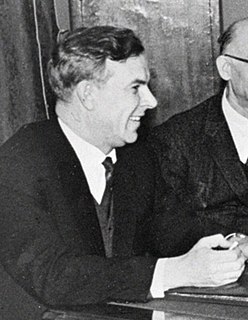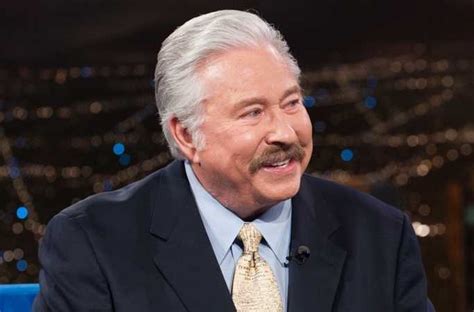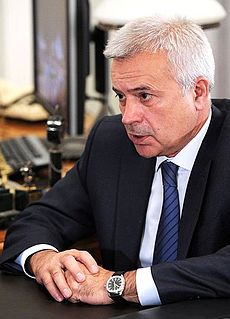A Quote by Olga Tokarczuk
I didn't believe that the Soviet Union would ever break down.
Related Quotes
This much I would say: Socialism has failed all over the world. In the eighties, I would hear every day that there is no inflation in the Soviet Union, there is no poverty in the Soviet Union, there is no unemployment in the Soviet Union. And now we find that, due to Socialism, there is no Soviet Union!
KGB was inseparable part of the Soviet Union and the whole structure of the Soviet society. We believe that the achievements of the Soviet Union and of the Soviet society, it's main achievements until the split in 1991, it was at the same time the main achievements of the KGB, because it was working for the same cause.
Back in 1956, we signed a treaty and surprisingly it was ratified both by the Supreme Soviet of the Soviet Union and the Japanese Parliament. But then Japan refused to implement it and after that the Soviet Union also, so to say, nullified all the agreements reached within the framework of the treaty.
National Defense A strong USA defense brought down the Soviet Union. It was Ronald Reagan - first in a speech at Notre Dame University in May 1981, then his 'Evil Empire' speech of March 1983 - who most eloquently declared communism's imminent demise. Reagan was right. And even Soviet officials attribute Ronald Reagan's rhetoric and foreign policy to bringing down that 'evil empire.' By Christmas Day, 1990, the Soviet Union ceased to exist. Liberals wished it were other things.
Back in the days of the Soviet Union, the countries of Eastern Europe, being under the control of the USSR, would call their states "people's republics." The sham that is currently going on in the states of the former Soviet Union is due to the fact that the politicians in power are eager to polish up their image abroad.
The first year I was in office, only about 800 people came out of the Soviet Union, Jews. By the third year I was in office... second year, 1979, 51,000 came out of the Soviet Union. And every one of the human rights heroes - I'll use the word - who have come out of the Soviet Union, have said it was a turning point in their lives, and not only in the Soviet Union but also in places like Czechoslovakia and Hungary and Poland [they] saw this human rights policy of mine as being a great boost to the present democracy and freedom that they enjoy.
I don't think we replaced the Soviet Union with Al Qaida. I think we replaced, we should have, Soviet Union with the merger of globalization and the IT revolution. I think it's that. That is the real challenge that we face today. Unlike the Soviet Union, it has no face, it has no missiles, but it is something that challenges every job, every city and every community.
It is sometimes said that one of the casualties of the general suspicion and mistrust that permeated the old Soviet Union was that the distinction between truth and other motivations to believe tended to break down. Upon hearing a purported piece of information, the reaction was not 'Is this true?' but 'Why is this person saying this? - What machinations or manipulations are going on here?' The question of truth did not, as it were, have the social space in which it could breath.






































